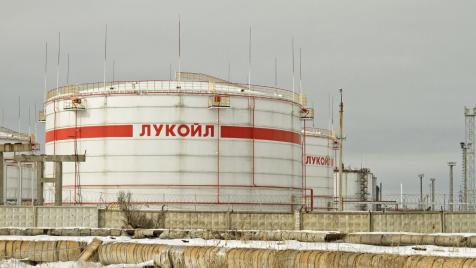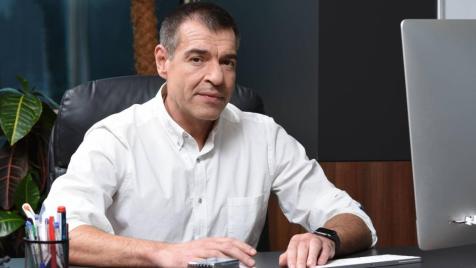Mini Maritsa Iztok is on artificial respiration - it barely manages to pay employee salaries
A solar park for self-sufficiency in the coal mines is being considered, but so far there is no money for it
© ECONOMIC.BG / BTA
The financial condition of Mini Maritsa Iztok (MMI) is dire and there is no prospect of the results to improve. The state-owned Bulgarian energy company reports losses in the millions, expected to be even greater by the end of 2024, and salaries are only paid thanks to loans from the Bulgarian Energy Holding (BEH) and banks.
The aid, which the country’s parliament (National Assembly) approved in April – and which previewed Mini Maritsa Iztok to receive 125 million euros each year in the next four - will be delayed, as approval from the European Commission is still pending. Against the background of this difficult situation, there are no alternative government ideas for the future of the coal mining complex. At least this is the feeling perceived from the parliamentary hearing of Acting Minister of Energy Vladimir Malinov on Friday.
Huge losses
He presented the enterprise’s financial results after attacks from the Revival far-right political party that the company was purposefully led to bankruptcy. From the statements, it became clear that the financial loss for 2023 amounts to BGN 137.4 million (about 68.5 million euros). And the situation for 2024 is only getting worse - for the period January - May, the loss from the operations of the mines reached nearly 50 million euros, and the minister's expectation for the entire year is that the negative financial result will exceed 100 million euros.
Daniel Prodanov from Revival cited a decision of the Board of Directors of Mini Maritsa Iztok, taken during the current caretaker government’s administration, which cancels the increase in the price of coal. According to him, with this decision, MMI is deliberately led to financial losses.
According to published data from April this year, the state mines sell coal to three power plants - the state-owned Maritsa Iztok 2 and the private TPP "AES Galabovo" and TPP "Brickel". By mid-July, however, nearly 50% less coal had been sold, resulting in a 45.7% drop in revenue. Until July 15, MMI sold 5.4 million tons of coal worth 57 million euros, whereas for the same period of 2023, 10.3 million tons were sold for 108.5 million euros.
Corporate life on credit
It is because of this lack of income that the state energy company cannot fulfill its obligations to suppliers, employees and others. Its current debts are 28.8 million euros, including money owed to the Ministry of Energy - for concession fees to the tune of 1.9 million euros. The company's receivables are 1.6 million euros, and its cash balance stands at 11.5 million euros.
Due to its difficult financial situation, the company has not concluded any new long-term contracts. It even has terminated public procurements with a total value of 40 million euros.
There are new ones announced, however, they only concern commitments to ensure safe working conditions and the company's activities," explained Malinov.
In general, in terms of costs, the coal mines have adopted a restrictive policy - they have switched to a two-shift regime, night work hours have been minimized, electricity costs have been optimized, with peak hours being used for downtime and repair activities, spending of diesel fuel has been reduced, repair activities are not outsourced anymore, but are carried out in-house.
Mini Maritsa Iztok has also started to reduce its workforce. The energy minister explained that this is done by not hiring new employees and letting people who acquire the right to a pension go.
In order to avoid shocks and to be able to pay and cover wages, a 50-million-euro loan from BEH and a 25-million-euro loan from a bank have been secured. For the private loan, BEH serves as a co-debtor, as no bank would finance a loss-generating enterprise. Malinov did not give details about the terms of the loan but mentioned that it was taken from DSK Bank.
On July 24, wages and related tax obligations were paid by MMI, but Malinov explained that it may be necessary to take out a new loan in order to continue paying these in the future. The total number of MMI employees is 6,556 people, and from January 1 to May 31, 62 million euros were paid for salaries.
The future is unclear
Do we have a long-term vision for the fate of Mini Maritsa Iztok? I wish we did," quipped Malinov to a question posed by MP Iskra Mihailova.
In his words, the Bulgarian state is trying to revive, or rather maintain, the mining complex, "but the market will ultimately determine its future".
The Bulgarian Socialist Party did not agree with this and cited the next item on the parliamentary agenda, which was about providing greater compensation for businesses due to the increased cost of electricity.
According to Dragomir Stoynev, "You don't have a plan and you don't know what's going to happen." He is adamant that the carbon pricing mechanism is completely harmful, and the European Green Deal needs to be renegotiated.
A state interference is needed when the market is flawed," Stoynev said, based on the decision expected to be taken today by MPs.
The energy minister said that he will put the ball back in the court of the National Assembly, adding that ultimately his caretaker government is limited by both its time frame and mandate.
He explained that the Council of Ministers took measures to renegotiate the Recovery Plan in its "Energy" section, "but we still managed to reduce CO2 emissions by 40% and we achieved it through market mechanisms, without restrictive or aggravating measures".
In order to keep Mini Martisa Iztok alive, the National Assembly decided in April that 125 million euros would be paid to the company each year to cover its basic costs. However, this aid is a state subsidy and must be approved by Brussels – a decision which has been delayed due to the European elections.
Unfortunately, the informal answer we received from the European Commission is that they would between 6 and 8 months to decide whether this constitutes a state subsidy," Malinov said, adding that the clock on this decision has been running since April.
According to Radoslav Ribarski from the PP-DB party, the solutions for the state coal mines proposed so far cannot lead to anything good.
There is no time, and we fear that it will come to the point where there will be no money for salaries," he said.
He is of the opinion that the way out of the situation is investments, however neither the company lands (brownfield) are being restored, nor are there any funds coming for such restoration. He gave an example of how through investments, costs can be reduced to cover corporate electricity needs.
Malinov replied that his ministry is considering this option and has a ready-made project for the construction of a solar park on the territory of the Mini Maritsa Iztok, which would supply in-house consumption of electricity. According to him, if an opportunity for external grant funding is found, the size of this solar park can reach 100 MW, but for now, there are no resources set aside for such a project.
Translated by Tzvetozar Vincent Iolov

 Aleksandra Sotirova-Delcheva
Aleksandra Sotirova-Delcheva 




